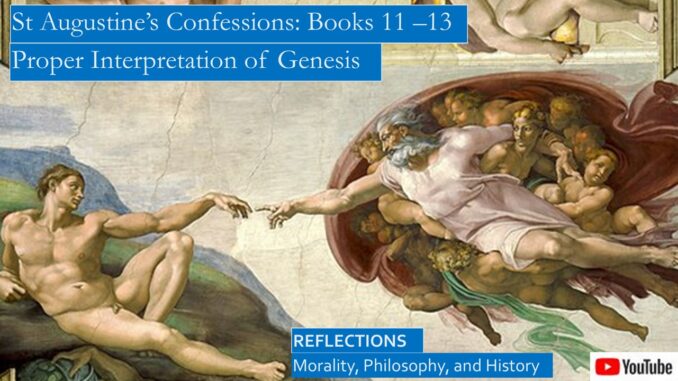
Why should we reflect on St Augustine’s commentary on the Book of Genesis in his spiritual autobiography, the Confessions, Books 11 through 13?
St Augustine’s commentary on Genesis is not an appendix, but is rather an integral part of his Confessions, as he confesses why we should reject the Manichean view of Creation and salvation.
How does the Genesis creation story differ from the pagan creation stories? How does Genesis express the nature of the Trinity?
How does God’s creation of light reflect God’s Love for us, and how we should, in return, Love God, and love our neighbor?
How is the Creation a metaphor compelling us to live a holy and sacramental life?
Why is St Augustine so fascinated by the nature of time?
Youtube script, with more Amazon book links:
https://www.slideshare.net/BruceStrom1/st-augustines-confessions-creation-in-genesis-manicheism-and-pagan-myths-books-11-through-13
YouTube Video: Confessions of St Augustine, Youth and Adolescence, Books 1 and 2
https://youtu.be/gdK1a3AbI9w
St Augustine’s Confessions: Manichaeism, NeoPlatonic Philosophy, and Monica’s Prayers, Books 3, 4, and 5
https://youtu.be/ydskqlgZSrE
St Augustine’s Confessions: Mother Monica, Concubine, Marriage, and Philosophy, Books 6 & 7
https://youtu.be/AjGbBozIReY
St Augustine’s Confessions, His Conversion, Baptism, St Monica’s Death, and Philosophy, Books 8 & 9
https://youtu.be/Vijtjxm3Ta0
St Augustine’s Confessions, Memory, Soul and Mind Book 10
https://youtu.be/xTHmGhGG6Bk
St Augustine’s Confessions, Time, Creation Genesis, Pagan Myths, and Manicheism Books 11 & 12
https://youtu.be/Ff-XsE5CuSo
ST AUGUSTINE’S CONFESSIONS, BOOKS 11 THRU 13
St Augustine recalls that he fell away from the Christian faith, drifting into the Manichean heresy, in part because the bible of his time was written in inelegant Latin. St Jerome was his contemporary, it would be many decades before he released his more elegant Latin Vulgate translation. Since ancient culture emphasized rhetoric, inelegant Latin created doubts among educated Romans about the reliability of the Scriptures.
St Augustine sees his time spent as a Manichean inquirer as both a time of rebellion from God and his Holy Scriptures, and in particular the Manichees rejected the Old Testament and the Genesis creation story.
St Augustine prays to God, For those of us who “see true meanings in your words,” “let us love one another, and if our thirst is not for vanity but for the truth, let us likewise Love you, our God, who are the Source from which is flows. Let us also honor Moses your servant, who delivered your Scriptures to us and was filled with your Spirit, by believing that when he wrote those words, by your inspiration his thoughts were directed to whichever meaning sheds the fullest light of truth and enables us to reap the greatest profit.”[1]
St Augustine is my favorite Catholic saint because in every major work he explicitly states that the foundation of the Christian faith is the two-fold Love of God, and love of neighbor, where we love our neighbors as ourselves. Since St Augustine views the Creation story as a story of how God loved his creation, and in particular man whom he created in his own image, he discusses this two-fold love many times in his interpretation of the first chapter of Genesis.
For example, just as the earth bears fruit in the Creation, so St Augustine says, “our souls should bear fruit in works of mercy.” By this mercy “we love our neighbor by giving him help for his bodily needs.” “We are weak, and therefore pity leads us to aid the needy, aiding them as we should wish to be aided ourselves if we were in like distress.”[2]
ST AUGUSTINE’S CONFESSIONS, BOOKS 1 THRU 10
The first nine books of the Confessions are a spiritual autobiography, where his beliefs and evolving emotions change as he first denies the Christianity of his youth when he is deceived by the Manichee heresy for over a decade, and as he travels down the road leading to his conversion back to the true Christian faith. These are confessions on multiple levels. They are a confession of his sins, especially as he recounts how he and a ragamuffin band of youngsters steal many pears from a neighbor’s orchard. They are a confession of faith as he finds his way back to the Christianity espoused by his mother Monica, urged on by the sermons of St Ambrose and the teachings of the NeoPlatonists. They are also a confession of scientific belief as he rejects the nonsensical worldview of the Manichean heresy.
Confessions of St Augustine, Youth and Adolescence, Books 1 and 2
https://seekingvirtueandwisdom.com/confessions-of-st-augustine-youth-and-adolescence-books-1-and-2/
https://youtu.be/gdK1a3AbI9w
St Augustine’s Confessions: Manichaeism, NeoPlatonic Philosophy, and Monica’s Prayers, Books 3, 4, and 5
https://seekingvirtueandwisdom.com/st-augustines-confessions-manichaeism-neoplatonic-philosophy-and-monicas-prayers/
https://youtu.be/ydskqlgZSrE
St Augustine’s Confessions: Mother Monica, Concubine, Marriage, and Philosophy, Books 6 & 7
https://seekingvirtueandwisdom.com/st-augustines-confessions-mother-monica-concubine-marriage-and-philosophy-books-6-7/
https://youtu.be/AjGbBozIReY
St Augustine’s Confessions, His Conversion, Baptism, St Monica’s Death, and Philosophy, Books 8 & 9
https://seekingvirtueandwisdom.com/st-augustines-confessions-his-conversion-baptism-st-monicas-death-and-philosophy-books-8-9/
https://youtu.be/Vijtjxm3Ta0
St Augustine summarizes these spiritual events, exploring their meaning, and the important role memory plays in our spiritual life, in Book 10 of the Confessions.
St Augustine’s Confessions: On Soul, Mind, Memory, Stoicism, Salvation, and True Happiness, Book 10
https://seekingvirtueandwisdom.com/st-augustines-confessions-on-soul-mind-memory-stoicism-salvation-and-true-happiness-book-10/
https://youtu.be/xTHmGhGG6Bk
We also reflected on the differences between Christianity, where the Almighty God is the source of all goodness, where evil is but a corruption of the good, and the dualistic Manichean system, where good and evil are more or less equal, and eternally battle for supremacy. [3]
| Christian Beliefs | Manichaeism Beliefs |
| Almighty God is omniscient, omnipresent, goodness itself | Dualistic cosmological struggle between light and darkness |
| Evil is a corruption of the good and the absence of virtue | Evil and virtue are co-equal, eternally engaged in struggle |
| Jesus Christ is the Son of God | Jesus is another prophet |
| Based on Jewish Old Testament | Derived from Zoroastrianism |
| Old Testament is Holy Scripture | Old Testament was corrupted to impose Judaism on Christianity |
| After death is judgment and resurrection of the body | Belief in reincarnation, only the perfect break free to Paradise |
Although the prophet Mani claims to be the Paraclete that Jesus promises to send, denying that the Holy Spirit is the Paraclete, he repudiates the Old Testament and the Genesis Creation story. Furthermore, the Manichean creation story resembles the Gnostic accounts and does not closely resemble any of the ancient Middle Eastern or Greek creation myths. In the complex Manichean account, there are three creations. In the First Creation story, the World of Light and the World of Darkness are separated until the King of Darkness greedily attacks the World of Light. The forces of light and darkness battle each other, and in the Third Creation account, evil beings swallow as much light as they can, they copulate, and give birth to men, trapping the light inside of these men. All mankind has light entrapped in them, and the Prophet Mani reveals to mankind the true source of the spiritual light imprisoned within them. [4] As a consequence of these beliefs, as St Augustine notes, the Manichean religion tends to under-emphasize the value of repentance.
Manicheism denies the validity of the Old Testament, it declares that the god of the Old Testament is an evil deity distinct from the God of Light. In the creation story, misery and corruption were caused by the trapping of spiritual light in ignorance and darkness, while the disobedience of Adam and Eve was seen as heroic, aided by the Serpent, who gave them knowledge.
In one anti-Manichean work, St Augustine states the “the Manichees assert that Christ was the one called by our Scriptures the Serpent, and they assure us that they have been given insight into this to open the eyes of knowledge and to distinguish between Good and Evil. They state that Christ came in the latter days to save souls, not bodies. They say Christ did not really exist in the flesh, but in mockery of the human senses simulated the fleshly form,” and both the Crucifixion and the Resurrection were illusions.[5] These are beliefs common to many Gnostic heresies of the ancient world.
ST AUGUSTINE: ON HOW THE CREATION REFLECTS THE LOVE OF GOD
St Augustine begins Book 11 of these Confessions praying, “O Lord, since you are outside time in eternity, are you unaware of the things that I tell you? Or do you see in time the things that occur in it?” “Can any praise be worthy of the Lord’s majesty?” “I write this book for love of your love.”[6]
We can contrast this spiritual yearning for the Love of God with St Augustine remembering how his raging hormones induced him to seek an imperfect romantic love as a youth: “I went to Carthage where I found myself in the midst of a hissing cauldron of lust. I had not yet fallen in love, but I was in love with the idea of it.”[7] But now St Augustine only seeks the Love of God and friendships rooted in his Love for God, a more perfect love.
How can we find our true happiness in God? St Augustine quotes the Beatitudes, “you have called us to be poor in spirit, to be patient and to mourn, to hunger and thirst for holiness, to be merciful and clean of heart, and to be peacemakers.”[8]
The Creation, for St Augustine, signifies God’s Love for man, just as sending his Son to live among us signifies his Love of man.
St Augustine also discusses the light of creation, the light of the Scriptures, as he prays, “I have long been burning with desire to contemplate your law and to confess to you both what I know of it and where my knowledge fails; how far the first gleams of your light have illuminated me and how dense my darkness remains and must remain, until my weakness is swallowed up in your strength.” “Let your Scriptures be my chaste delight. Let me not deceive myself in them nor deceive others about them. Hear me, O Lord. Have mercy on me, O Lord my god, Light of the blind and Strength of the weak, Light, too, of those who see and Strength of the strong.”[9]
LET THERE BE LIGHT, AND THE LIGHT BEGAN
St Augustine prays to God, “At the beginning of creation you said, ‘Let there be light, and the light began.’” “And it became light, not simply by existing, but by fixing its gaze upon you and clinging to you, the Light which shone upon it. It owes to your grace, and to your grace alone, both the gift of its very existence and the gift of a life that is lived in happiness.”[10]
Thus, the Creation is also a metaphor for us living a godly life, as Jesus exhorts us in the Sermon on the Mount, “You are the light of the world. A city set on a hill cannot be hidden. Nor do men light a lamp and put it under a bushel, but on a stand, and it gives light to all in the house.”[11]
Why was light created? St Augustine prays to God, “the angels fell; man’s soul fell; and their fall shows us what a deep chasm of darkness would still have engulfed the whole spiritual creation if you had not said, ‘Let there be light.’” St Augustine adds to this prayer, “I show you my Love, God, but if it is too little, give me strength to Love you more.”[12]
St Augustine recalls the lights that lit the apostles at Pentecost when they received the Holy Spirit, quoting from Acts that “all at once a sound came from heaven, like that of a strong wind blowing, and then appeared to them what seemed to be tongues of fire, which parted and came to rest on each of them, and they became lights in the firmament of heaven, possessing the word of life.”[13]
How can the light shine in our lives? St Augustine prays, “since your Spirit moved over the waters, your mercy did not abandon us in our misery. You said, ‘Let there be light.’ You also said, ‘Repent; for the kingdom of heaven is at hand.’ You told us to repent. You commanded light to be made.” So, to St Augustine, repentance is light.
Quoting many Scriptures, St Augustine continues his prayer, “In our sad mood we thought of you; in the land of Jordan, we remembered you, O Lord. We remembered you in Christ, in the mountain high as yourself, who humbled himself for us. We realized how hateful our darkness was. We turned to you, and light was made. And so it is that once we were all darkness, but now, in the Lord, we are all daylight.”[14]
COMPARING GENESIS CREATION TO PAGAN MYTHS
What distinguishes the Creation story in Genesis from the Manichean and all the pagan Creation stories of the ancient Middle East is that the Creation in Genesis does not involve some sexual act or battle between primordial beings, but rather, in Genesis, Creation occurs when God wills the Creation, when God speaks his Creation into being.
The first chapter of Genesis begins:
“In the beginning God created the heavens and the earth. The earth was without form and void, and darkness was upon the face of the deep; and the Spirit of God was moving over the face of the waters.
And God said, ‘Let there be light’; and there was light. And God saw that the light was good; and God separated the light from the darkness. God called the light Day, and the darkness he called Night. And there was evening and there was morning, one day.”[15]
St Augustine probably did not know that the Genesis story of Creation relied heavily on the Mesopotamian epic, the Enuma Elis.[16] In this story, and in all ancient Middle Eastern creation stories, the heavens and the earth was created from a formless pre-existing chaos, and Genesis seems to adopt this view, as “the earth was without form and void.” But all Jewish and Christian commentators insist that the God created the world ex-nihilo, out of nothing.
How did St Augustine explain this? He simply teaches us that God first created this formless earth, as he prays: “You, O Lord, created the world from formless matter, which you created out of nothing.”[17] “From nothing you created heaven and earth, distinct from one another.”[18]
The Babylonian cosmology from the Enuma Elis is seen in the second day of Creation in Genesis:
“And God said, ‘Let there be a firmament in the midst of the waters, and let it separate the waters from the waters.’ And God made the firmament and separated the waters which were under the firmament from the waters which were above the firmament. And it was so. And God called the firmament Heaven. And there was evening and there was morning, a second day.”[19]
In Babylonian cosmology, the firmament is the earth and sky, the waters are separated into the lower waters of the oceans and fresh waters of the earth from the water above the skies, some of which are periodically released as rain, snow, and hail. The sun, moon, and stars move in circles in the upper reaches of this firmament. This may sound ridiculous to modern ears, but this made perfect sense to the ancients.[20]
We are planning a video comparing Genesis to the various Middle Eastern Creation stories, based primarily on a set of Wondrium lectures.
St Augustine views the firmament as a metaphor, as he prays “Above this firmament of your Scripture I believe that there are other waters, immortal and kept safe from earthly corruption.” The faithful “read your will, they choose it to be theirs, they cherish it. They read it without ceasing and what they read never passes away. For it is your own unchanging purpose that they read, choosing to make it their own, cherishing it.” “Those who preach your word pass on from this life to the next, but your Scripture is outstretched over the peoples of this world to the end of time.”[21]
St Augustine praises God, “You set special lights to burn in the firmament. These were your saints, who are possessed of the word that gives life. In them shines the sublime authority that is conferred upon them by their spiritual gifts.”[22]
ST AUGUSTINE REFLECTS ON THE NATURE OF TIME
Why does St Augustine ponder the nature of time? Partially because the Creation story, though it mentions the seven days of creation, is really timeless, outside the boundaries of time, its consequences are eternal.
Are the days of Creation in Genesis actual twenty-four-hour days, or are they metaphorical days, eons rather than days, or an indeterminate measurement? Although God created light and darkness, and day and night, in the first day, they were intermingled. God did not separate the light from the darkness, and the day from the night, until the fourth day of Creation, when God also created the sun and the moon and the stars. St Augustine, after some debate, concludes that “time is not the movement of a body,”[23] time is not the movement of the sun and earth and moon that measure time.
St Augustine teaches us that God “uttered in time, that heaven and earth should be made.”[24] He prays to God, “In this way you mean for us to understand your Word, who is God with you, God with God, your Word uttered eternally in whom all things are uttered eternally.”[25]
St Augustine rues, “those who ask, ‘What was God doing before he made heaven and earth?’ are steeped in error.” “The will of God is not a created thing. It is there before any creation takes place because nothing could be created unless the will of its Creator preceded its creation. The will of God, then, is part of his substance.”[26]
God is not only beyond time, as St Augustine prays to God, “You are the Maker of all time. If there was any time before you made heaven and earth, how can anyone say that you were idle? You must have created time, for time could not elapse before you had created it.”
As mortal creatures, we experience time differently from God. St Augustine prays to God, “Our years are completed when they move into the past. Your years, God, are one day, yet your day does not come daily but is always today, because your today does not give way to any tomorrow, nor does it take the place of any yesterday. Your today is eternity.”[27]
St Augustine seeks a scientific definition of time. St Augustine remembers that “once I heard a learned man say that time is nothing but the movement of the sun and the moon and the stars, but I did not agree.”[28] But St Augustine is frustrated in his search, as he prays, “I confess to you, Lord, that I still do not know what time is.”[29] One fact we can be sure of, is that we should not waste our time on earth on selfish endeavors but seek true happiness in Loving God and our neighbor.
We finally have a scientific theory about the nature of time, time and space in quantum physics is posited as a fourth dimension. When we travel extremely fast at a substantial fraction of the speed of light, time actually dilates relatively. However, we still do not understand exactly what time is, as one physics professor notes, he who says he understands quantum physics is a liar.
THE GENESIS CREATION STORY REVEALS THE TRINITY
St Augustine glimpses the Trinity when, in the Creation story, “the Spirit of God was moving over the face of the waters.”[30] This reminds St Augustine of St Paul, who exhorts that the “Love of God has been poured out in our hearts by the Holy Spirit, whom we have received.”[31]
St Augustine prays, “How shall I find the words to explain how the weight of the passions of concupiscence drag us down into the sheer depths and how the Love of God raises us up through your Spirit, who moved over the waters?” “The depths to which we sink, and from which we are raised, are not places in space.” “They are our passions, our loves, the unclean leanings of our own spirits, which drag us downward in our love of the world and its cares; but in our love of that life where all care is banished, the holiness of your Spirit raises us aloft, so that we may lift up our hearts to you, to the place where your Spirit moved over the waters.”[32]
Creation is eternal, as God is eternal, and the Love of God is eternal. St Augustine prays, “To whatever place I go, I am drawn to it by Love. By your Gift, the Holy Spirit, we are set aflame and borne aloft, and the fire within us carries us upward. For our journey leads us upward to the peace of heavenly Jerusalem; it was a welcome sound when I heard them singing, ‘We will go into the Lord’s house, as we sing the Song of Ascents. There, if our will is good, you will find room for us, so that we shall wish for nothing else but to remain in your house forever.”[33]
St Augustine praises God, “For we were overwhelmed by our sins; we had fallen away from you into the depths of darkness; and your good Spirit was moving over us, ready to bring help when the time was due. You made just men of sinners and set them apart from the wicked.”[34]
CREATION AS A METAPHOR FOR LIVING A SACRAMENTAL LIFE
Note: Italics simply mean these extended quotations of Scripture were not included in the YouTube script.
Genesis continues with the third day of creation:
“And God said, “Let the waters under the heavens be gathered together into one place, and let the dry land appear.” And it was so. God called the dry land Earth, and the waters that were gathered together he called Seas. And God saw that it was good. And God said, ‘Let the earth put forth vegetation, plants yielding seed, and fruit trees bearing fruit in which is their seed, each according to its kind, upon the earth.’ And it was so. The earth brought forth vegetation, plants yielding seed according to their own kinds, and trees bearing fruit in which is their seed, each according to its kind. And God saw that it was good. And there was evening and there was morning, a third day.”[35]
The pattern is that in the first three days of Creation, God primarily separates the elements in the chaotic existence, whereas in the next three days, God primarily creates the earth, the animals, and mankind.
In Genesis, on the fourth day, after he creates vegetation, God creates the sun, which measures the days, and the moon and stars, and separates day from night.
“And God said, ‘Let there be lights in the firmament of the heavens to separate the day from the night; and let them be for signs and for seasons and for days and years, and let them be lights in the firmament of the heavens to give light upon the earth.’ And it was so.”
“And God made the two great lights, the greater light to rule the day, and the lesser light to rule the night; he made the stars also. And God set them in the firmament of the heavens to give light upon the earth, to rule over the day and over the night, and to separate the light from the darkness. And God saw that it was good. And there was evening and there was morning, a fourth day.”[36]
As the lights shine in the firmament, so should our good deeds shine to those around us, as St Augustine prays, “Let there be luminaries in the sky. Let us share our bread with the hungry, make the poor and vagrant welcome in our houses, and meet the naked and clothe him.” “These good deeds are the fruits that spring from the earth.” “Let our light shine out in the world and from this humble crop of good deeds let us pass on to that more sublime harvest, the joy of contemplation, so that we may come to possess the Word of Life and shine in the world like stars set in the firmament of your Scripture.”[37]
On the fifth day, in Genesis, God created the creatures swimming in the waters, and the birds who fly in the air. On the sixth day, in Genesis, God created the land animals, then he created man in his own image, giving him dominion over all his creation.
And God said, “Let the waters bring forth swarms of living creatures, and let birds fly above the earth across the firmament of the heavens.” So, God created the great sea monsters and every living creature that moves, with which the waters swarm, according to their kinds, and every winged bird according to its kind. And God saw that it was good. And God blessed them, saying, ‘Be fruitful and multiply and fill the waters in the seas, and let birds multiply on the earth.’ And there was evening and there was morning, a fifth day.
And God said, “Let the earth bring forth living creatures according to their kinds: cattle and creeping things and beasts of the earth according to their kinds.” And it was so. And God made the beasts of the earth according to their kinds and the cattle according to their kinds, and everything that creeps upon the ground according to its kind. And God saw that it was good.
Then God said, ‘Let us make man in our image, after our likeness; and let them have dominion over the fish of the sea, and over the birds of the air, and over the cattle, and over all the earth, and over every creeping thing that creeps upon the earth.’ So God created man in his own image, in the image of God he created him; male and female he created them. And God blessed them, and God said to them, ‘Be fruitful and multiply, and fill the earth and subdue it; and have dominion over the fish of the sea and over the birds of the air and over every living thing that moves upon the earth.’ And God said, ‘Behold, I have given you every plant yielding seed which is upon the face of all the earth, and every tree with seed in its fruit; you shall have them for food. And to every beast of the earth, and to every bird of the air, and to everything that creeps on the earth, everything that has the breath of life, I have given every green plant for food.’ And it was so. And God saw everything that he had made, and behold, it was very good. And there was evening and there was morning, a sixth day.[38]
Why does St Augustine see this as a metaphor for the sacraments? Man has assumed a great responsibility in his dominion over creation, his life should be sacramental, as a child created by God, he should Love God and love his neighbor as himself.
We are reminded of this two-fold Love when “through the sacrament of the Eucharist, the Fish which was raised from the depths is held out to us and is received as food.” “Almsgiving is like the earth bearing fruit.”[39] “The fruits of the earth represent the works of mercy which the fertile earth produces to help us in the needs of this life,” and so we should show hospitality towards our acquaintances, as many helped Paul in his ministry and when he was imprisoned.[40]
SEVENTH DAY OF CREATION AS SABBATH OF ETERNAL LIFE
In Genesis, on the seventh day, God rested,
“Thus, the heavens and the earth were finished, and all the host of them. And on the seventh day God finished his work which he had done, and he rested on the seventh day from all his work which he had done. So, God blessed the seventh day and hallowed it, because on it, God rested from all his work which he had done in creation.”[41]
The Old Testament repeats important concepts, so the fact that the world was created by God is emphasized by repeating his “work which he had done.” The Creation was done by God alone.
At the end of our days, mortal man will also enjoy eternal rest. St Augustine prays to God, “After all your works were done and you had seen that they were very good, you rested on the seventh day.” This is a reminder that “when our work in this life is done, we too shall rest in you in the Sabbath of eternal life, though our works are very good only because you have given us the grace to perform them.”[42]
St Augustine continues this prayer to God, “In that eternal Sabbath you will rest in us, just as now you work in us. The rest that we shall enjoy will be yours, just as the work that we now do is your work done through us. But you, O Lord, are eternally at work and eternally at rest. Is it not in time that you see or in time that you move or in time that you rest: yet you make what we see in time; you make time itself and the response which comes when time ceases.”[43]
THE GREATEST TRUTH OF THE CREATION STORY
There is no theological topic that generates more hostility than arguments over the creation story and the validity of the scientific theories of evolution. St Augustine repeats in the Confessions his main warning in his key work, On Christian Doctrine, aka On Christian Teaching: We should always remember what is most important in our lives in Christ: “Let us Love the Lord our God with our whole heart and our whole soul and our whole mind, and love our neighbor as ourselves,” as Mathew exhorts. In On Christian Teaching, St Augustine teaches that only the biblical interpretations that increase in our hearts our two-fold Love of God and neighbor are proper.
Similarly, in his Confessions, St Augustine warns against foolish and mischievous arguments, teaching us that “whatever Moses meant in his books, unless we believe that he meant it to be understood in the spirit of these two precepts of charity, we are treating God as a liar.”[44]
DISCUSSING THE SOURCES
St Augustine was an excellent orator and writer, but the Confessions is the most beautifully crafted and closely edited of his works, and there are many translations. Although the Nicene Fathers is an outdated translation, we always consult it for the excepts from his Retractions as well as the interesting translator prefaces. Also, the first half of volume four of the Nicene Fathers contain St Augustine’s anti-Manichean writings, some are debates with Bishop Faustus, who was his friend when he was a Manichee. Faustus’ weak philosophical knowledge and his inability to intellectually defend Manicheism contributed to St Augustine’s leaving the Manichees and converting to Christianity.
Please view the first video on the Confessions for more comments on my sources.
In addition, there are some Manichean writings in the Other Bible, an excellent collection of esoteric texts, some heretical, some mainstream. We also consulted the excellent book by a leading Catholic priest on Reading the Old Testament, which includes historical backgrounds and archeological findings on the various books of the Old Testament.
[1] St Augustine, Confessions, translated by RS Pine-Coffin (New York: Dorset Press, 1986, 1961, originally 400 AD), Book 12, Chapter 30, p. 308.
[2] St Augustine, Confessions, Book 13, Chapter 17, p. 324.
[3] Eusebius, The History of the Church or Ecclesiastical History, Book 30, pp. 319-230 and https://en.wikipedia.org/wiki/Manichaeism and St Augustine, Confessions, Book 5, Chapter 11, pp. 105-106.
[4] https://en.wikipedia.org/wiki/Manichaeism
[5] Manichean Creation Myths, Included in the Other Bible, edited by Willis Barnstone (HarperSanFrancisco, 1984), pp. 40-41, he is quoting St Augustine, de haeresibus ad quodvultdeum, or To Quodvultdeus, On Heresies, 46.4.
[6] St Augustine, Confessions, Book 11, Chapter 1, p. 253.
[7] St Augustine, Confessions, Book 3, Chapter 1, p. 55.
[8] St Augustine, Confessions, Book 11, Chapter 1, p. 253.
[9] St Augustine, Confessions, Book 11, Chapter 2, p. 254.
[10] St Augustine, Confessions, Book 13, Chapter 2, p. 313.
[11] https://www.biblegateway.com/passage/?search=matthew+5%3A14-15&version=RSVCE and St Augustine also quotes this verse in Book 13, Chapter 19, p. 327.
[12] St Augustine, Confessions, Book 13, Chapter 8, p. 316.
[13] St Augustine, Confessions, Book 13, Chapter 19, p. 327.
[14] St Augustine, Confessions, Book 13, Chapter 12, p. 319.
[15] https://www.biblegateway.com/passage/?search=genesis+1%3A1-5&version=RSVCE
[16] https://en.wikipedia.org/wiki/En%C5%ABma_Eli%C5%A1
[17] St Augustine, Confessions, Book 12, Chapter 8, p. 285.
[18] St Augustine, Confessions, Book 12, Chapter 7, p. 284, and also review Book 12, Chapters 12-13, pp. 288-289, and Book 12, Chapter 22, p. 299.
[19] https://www.biblegateway.com/passage/?search=genesis+1%3A6-8&version=RSVCE
[20] Lawrence Boadt, Reading the Old Testament (New Jersey: Paulist Press, 2012), Chapter 6, pp. 91-92.
[21] St Augustine, Confessions, Book 13, Chapter 15, p. 323.
[22] St Augustine, Confessions, Book 13, Chapter 34, p. 345.
[23] St Augustine, Confessions, Book 11, Chapter 24, p. 273.
[24] St Augustine, Confessions, Book 11, Chapter 6, p. 258.
[25] St Augustine, Confessions, Book 11, Chapter 7, p. 259.
[26] St Augustine, Confessions, Book 11, Chapter 10, p. 261.
[27] St Augustine, Confessions, Book 11, Chapter 13, p. 263.
[28] St Augustine, Confessions, Book 11, Chapter 23, p. 271.
[29] St Augustine, Confessions, Book 11, Chapter 25, p. 273.
[30] St Augustine, Confessions, Book 13, Chapters 5-6, pp. 314-315.
[31] St Augustine is quoting Romans 5:5+.
[32] St Augustine, Confessions, Book 13, Chapter 7, pp. 315-316.
[33] St Augustine, Confessions, Book 13, Chapter 9, p. 317, quoting from Psalms 83/84, 119/120, 121/122.
[34] St Augustine, Confessions, Book 13, Chapter 34, p. 345.
[35] https://www.biblegateway.com/passage/?search=genesis+1%3A9-13&version=RSVCE
[36] https://www.biblegateway.com/passage/?search=genesis+1%3A14-19&version=RSVCE
[37] St Augustine, Confessions, Book 13, Chapter 18, p. 325.
[38] https://www.biblegateway.com/passage/?search=genesis+1%3A20-31&version=RSVCE
[39] St Augustine, Confessions, Book 13, Chapter 23, p. 334.
[40] St Augustine, Confessions, Book 13, Chapter 25, p. 337.
[41] https://www.biblegateway.com/passage/?search=genesis+2%3A1-3&version=RSVCE
[42] St Augustine, Confessions, Book 13, Chapter 36, p. 346.
[43] St Augustine, Confessions, Book 13, Chapter 37, p. 346.
[44] St Augustine, Confessions, Book 12, Chapter 25, p. 302.

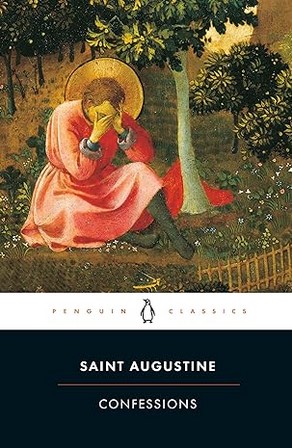
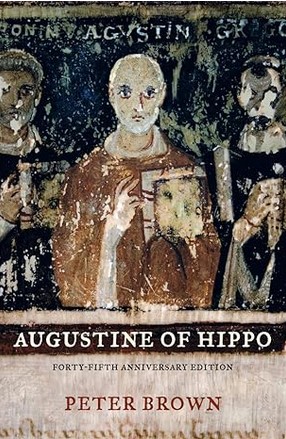
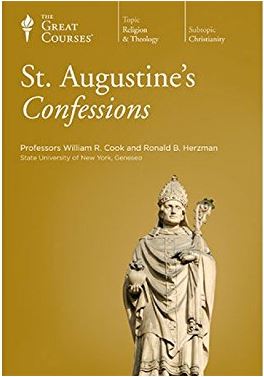
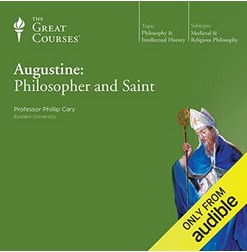
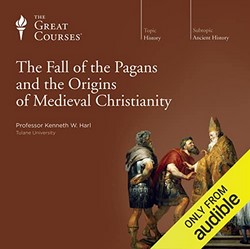
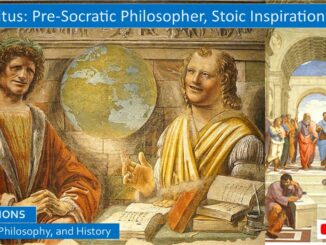
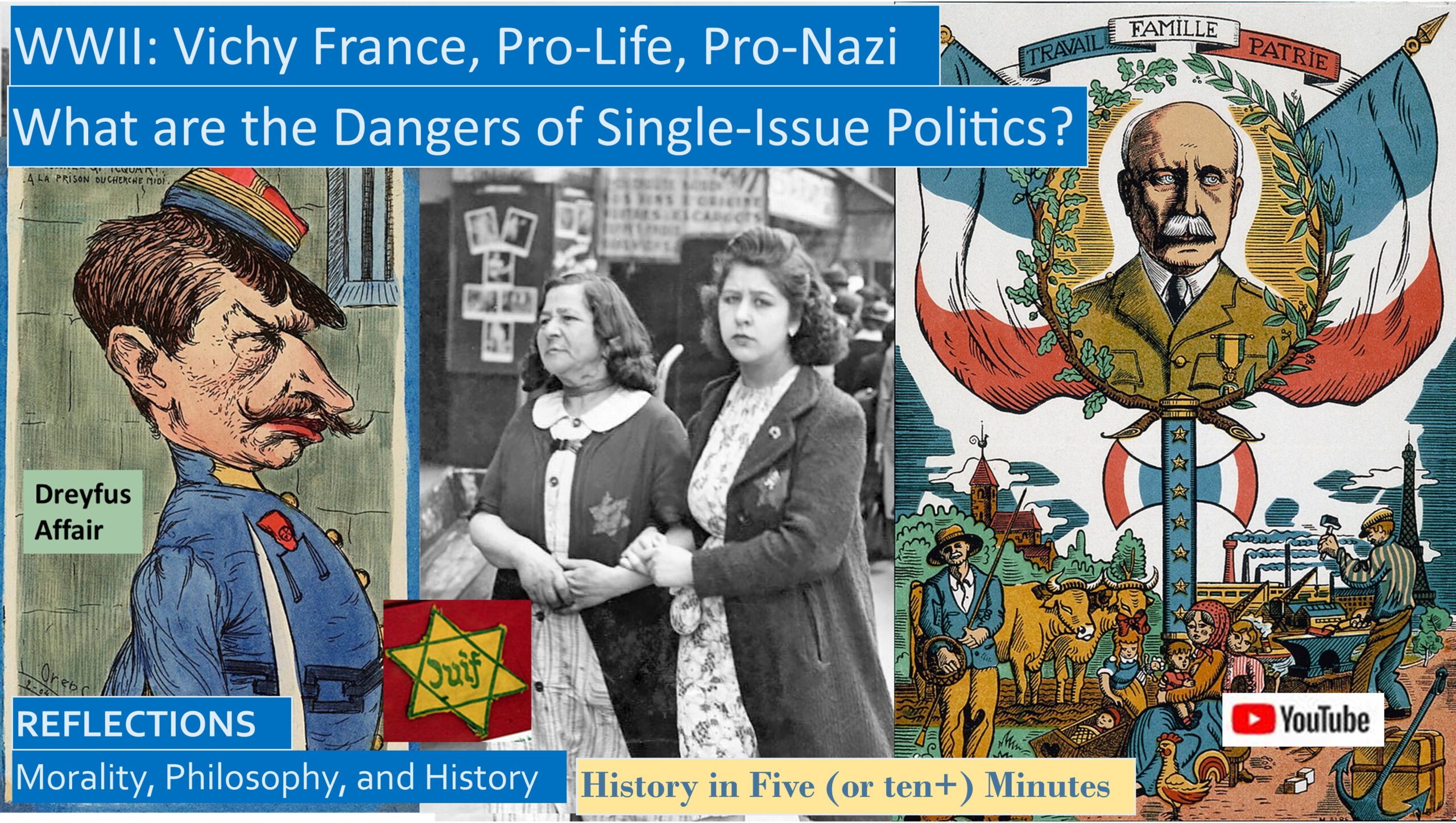
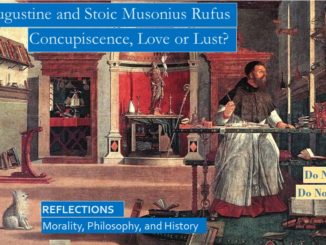
2 Trackbacks / Pingbacks